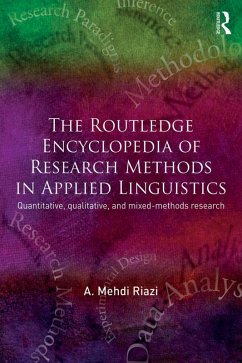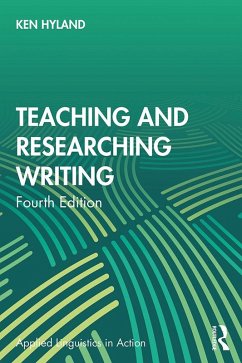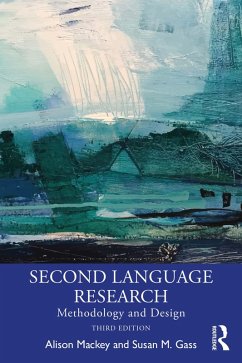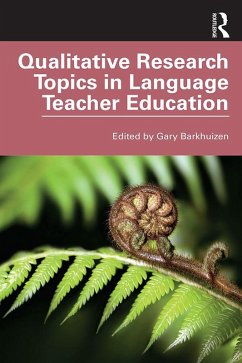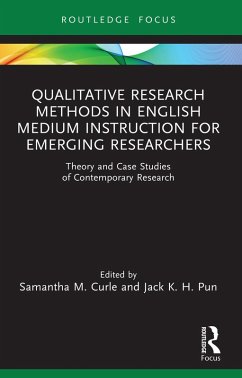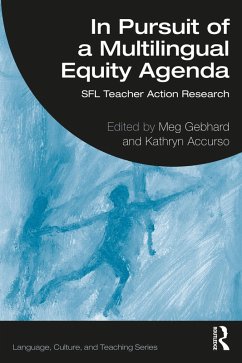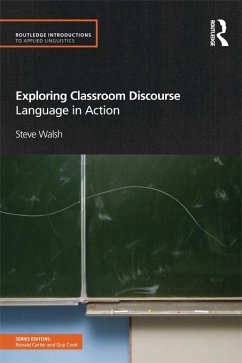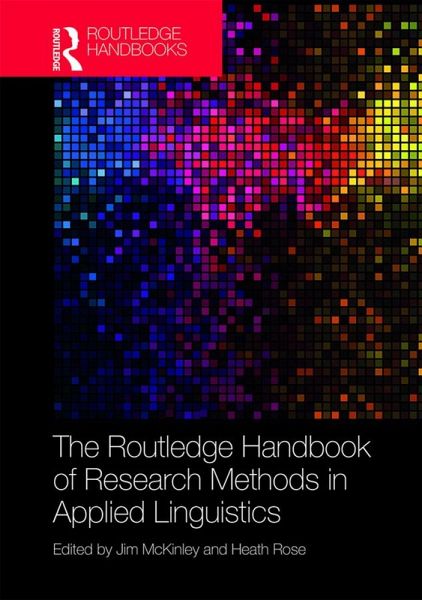
The Routledge Handbook of Research Methods in Applied Linguistics (eBook, PDF)
Versandkostenfrei!
Sofort per Download lieferbar
47,95 €
inkl. MwSt.
Weitere Ausgaben:

PAYBACK Punkte
24 °P sammeln!
The Routledge Handbook of Research Methods in Applied Linguistics provides a critical survey of the methodological concepts, designs, instruments and types of analysis that are used within the broad field of applied linguistics. With more than 40 chapters written by leading and emerging scholars, this book problematizes and theorizes applied linguistics research, incorporating numerous multifaceted methodological considerations and pointing to the future of good practice in research. Topics covered include: key concepts and constructs in research methodology, such as sampling strategies and mi...
The Routledge Handbook of Research Methods in Applied Linguistics provides a critical survey of the methodological concepts, designs, instruments and types of analysis that are used within the broad field of applied linguistics. With more than 40 chapters written by leading and emerging scholars, this book problematizes and theorizes applied linguistics research, incorporating numerous multifaceted methodological considerations and pointing to the future of good practice in research. Topics covered include:
The Routledge Handbook of Research Methods in Applied Linguistics is key reading for both experienced and novice researchers in Applied Linguistics as well as anyone undertaking study in this area.
- key concepts and constructs in research methodology, such as sampling strategies and mixed methods research;
- research designs such as experimental research, case study research, and action research;
- data collection methods, from questionnaires and interviews to think-aloud protocols and data elicitation tasks;
- data analysis methods, such as use of R, inferential statistical analysis, and qualitative content analysis;
- current considerations in applied linguistics research, such as a need for transparency and greater incorporation of multilingualism in research; and
- recent innovations in research methods related to multimodality, eye-tracking, and advances in quantitative methods.
The Routledge Handbook of Research Methods in Applied Linguistics is key reading for both experienced and novice researchers in Applied Linguistics as well as anyone undertaking study in this area.
Dieser Download kann aus rechtlichen Gründen nur mit Rechnungsadresse in A, B, BG, CY, CZ, D, DK, EW, E, FIN, F, GR, HR, H, IRL, I, LT, L, LR, M, NL, PL, P, R, S, SLO, SK ausgeliefert werden.




